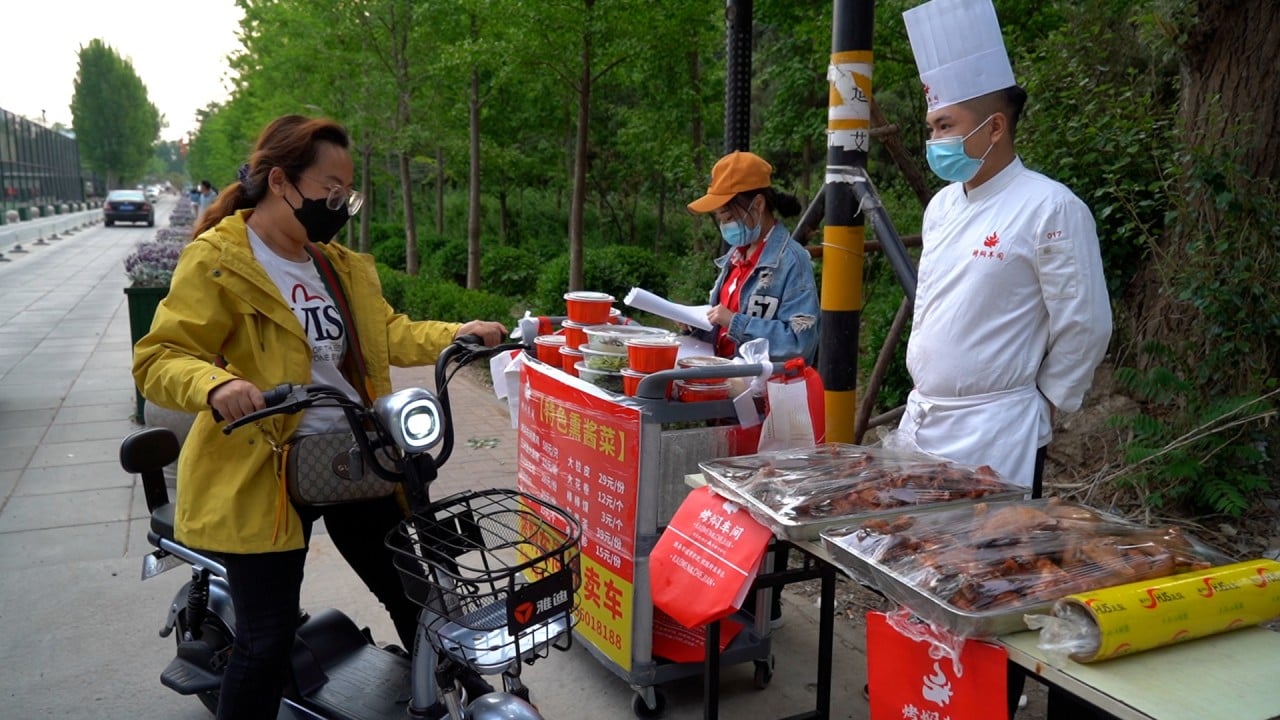
China sends smallest Davos delegation in years amid concern zero-Covid is limiting its voice on world stage
- The Chinese delegation at Davos this year is unusually small, with representation in only four of more than 200 discussions
- China’s strict Covid-19 quarantine rules have been blamed, a situation that will limit its chance to outline global policy goals
Participation in the forum, which is being held in person for the first time in more than two years, is vital given divisions on a variety of global issues, including a food crisis and high inflation caused by the Ukraine war, pressure from US monetary tightening and high levels of debt in emerging economies.
The four-day Open Forum Davos, which started on Monday, includes more than 200 parallel discussion sessions, but China will officially take part in only four, according to a schedule released by the organiser.
The highest ranking Chinese participant is climate change special envoy Xie Zhenhua, who is expected to sit side by side with his US counterpart John Kerry in a one-hour panel discussion titled Safeguarding Our Planet and People on Tuesday.
There are two China-related sessions. The China Investment and Economic Outlook on Monday afternoon will be attended by Zhu Ning, deputy dean of Shanghai Advanced Institute of Finance, as well as Gong Yingying, the founder of Yidu Tech, a healthcare information provider.
A session on China’s place in the global energy transition on Tuesday will include Ni Jun, an executive at Chinese lithium-ion battery maker Contemporary Amperex Technology, and Zhang Zhigang, president of the State Grid Corporation of China.
Ding Yuan, vice-president and dean of the China Europe International Business School, will speak at the session on Eurasia strategic outlook on Monday afternoon.
Though most discussions will be streamed online, China will not have an official voice on many issues of concern, such as the Regional Comprehensive Economic Partnership, digital currency, globalisation, food security and the cold war 2.0.
Conversely, the American delegation will include US Commerce Secretary Gina Raimondo, and several US senators will sell their version of global cooperation in a session titled The View from Capitol Hill.
Wang Huiyao, founder and president of Beijing-based think tank, the Centre for China and Globalisation, attributed the much lower Chinese participation this year to “technical reasons”, referring to the country’s strict Covid-19 quarantine policy.
China’s immigration authority recently pledged to prevent unnecessary overseas trips, as Beijing doubles down on efforts to contain an Omicron outbreak.
This is certainly unfavourable to China
“This is certainly unfavourable to China,” Wang said.
“We should consider strengthening online exchanges and increase more international flights,” he said, adding that inbound quarantine rules are being gradually eased.
Zhu Ning, one of the Chinese speakers, said organisers wanted to hold an offline, rather than online, event.
This year’s small Chinese team is very different from previous annual meetings when Chinese policymakers, entrepreneurs, academics and journalists swarmed the Swiss town.
“China’s dignitaries and business leaders are not travelling abroad any more and they are missing out on messaging how Beijing is thinking or how the business field is thinking. There is a real disconnect and online meetings cannot bridge the gap,” said Joerg Wuttke, president of the European Union Chamber of Commerce in China
“Premier Li Keqiang acknowledged this and said it is absolutely vital that China should reconnect and go back to the global stage, and also emphasised that human touch is very important,” said Wuttke, who attended a trade symposium last week with Li.
When President Xi Jinping delivered his keynote speech at the 2017 Davos forum, he was accompanied by the largest ever delegation of Chinese officials – including two of the seven-member Politburo Standing Committee and State Councillor Yang Jiechi.
Key speakers include world leaders like Ukrainian president Volodymyr Zelensky, German chancellor Olaf Scholz, former US secretary of state Henry Kissinger, European Central Bank governor Christine Lagarde and prominent businesspeople like Ray Dalio and Bill Gates.
Zelensky will give the keynote speech at the opening ceremony, while Russia has not been invited to take part this year.
Ahead of the event, Kristalina Georgieva, managing director of the International Monetary Fund, called Russia’s invasion of Ukraine “a crisis upon a crisis” and warned of geoeconomic fragmentation, as about 30 countries have restricted trade in food, energy and other key commodities since the war began.
“Only international cooperation can address urgent global issues such as fixing shortages of food and other products, eliminating barriers to growth, and saving our climate,” she and her colleagues wrote in an online blog on Sunday.
China has a close connection with the World Economic Forum and has run the Annual Meeting of the New Champions, known as Summer Davos, in the Chinese cities of Tianjin or Dalian since 2007.
Summer Davos has been suspended over the past two years and there is no sign of an immediate return.


